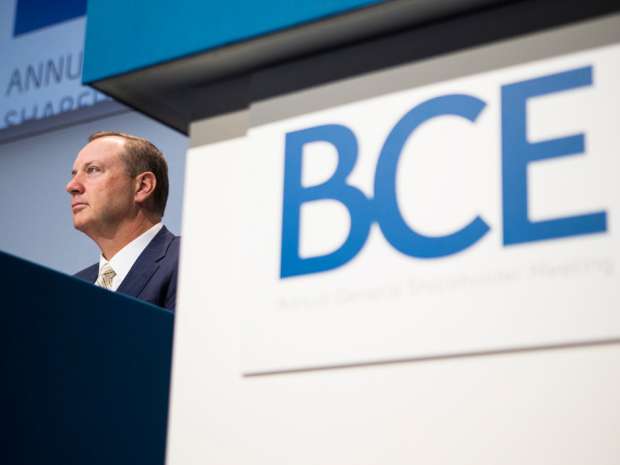by Scott Krisiloff, CIO, Avondale Asset Management
The Dow hit 22,000 this week but the commentary that we’re reading is less exuberant than the market would suggest. Many CEOs are relatively subdued about the environment. Considering that nominal GDP growth is below 4%, maybe that shouldn’t be too surprising.
A lot has been made of earnings growth this quarter, but it’s worth remembering that when the final results are in it’s very possible that S&P 500 earnings won’t break the quarterly record set in 3Q 2014, almost three years ago. So far earnings have only rebounded from a significant decline. However the S&P 500 has climbed 20% since then.
The Macro Outlook:
If you cut through the noise, US growth is a little softer
“If we look at the macro environment, the economies around the world we’d say are mixed but in aggregate, are okay to good. FX headwinds have subsided. Energy markets have recovered some and certainly stabilized. Raw materials, though, are rising and creating some short-term margin pressure but we believe are manageable over the year…If you cut through the noise, U.S. growth is a little softer.” —Ecolab CEO Doug Baker (Business Services)
Activity remains mixed
“Overall, I’d say industrial activity remains weak with mixed activity across the remainder of what we call nonresidential construction segments…growth rates for most construction markets are slowing, and growth in the office construction is also beginning to moderate somewhat. Large industrial project activity continues to be weak. The manufacturing category, as a key indicator of the C-30 report showed through April and May, down some 8.5%. We’re also seeing somewhat slowing growth in housing starts” —Eaton CEO Craig Arnold (Industrial)
Expectations have declined
“Industrial production and retail are still growing, although at a slower pace than originally projected…the forecast for B2B, if you go back earlier in the year to today, is not quite as strong because of retail sales and also because industrial production forecasts were higher even three months ago to where they are today.” —UPS (Package Delivery)
Office leasing has been a little weaker than CBRE expected
“Even though the economy is generally doing nicely, there is a couple of things going on. In general, corporations are being very careful about costs. We are doing it and so are the other big corporations around the U.S. and around the world. And secondly, in a few markets, there have been limited circumstances where leases would have otherwise gotten done, but there was inadequate big blocks of space to get them done” —CBRE CEO Bob Sulentic (CRE Broker)
Restaurant spending has been decelerating
“in the U.S. and just about any other market we’ve studied, there’s been a decades-long trend for growth away from home, food and beverage consumption…However, in the past year, we’ve seen some pullback from that trendline.” —Starbucks CSO Matthew Ryan (Restaurants)
Not everyone is gloomy though
“Global demand conditions strengthened versus the second quarter. Emerging markets were up low single digits and mature markets grew mid-single digits. Growth was supported by improving end markets in the U.S. and Asia and early signs of improving demand conditions in Canada. Growth in Asia accelerated during the quarter, led by China. Excluding China, the rest of the region also improved, growing at low single digits in the quarter…We’re seeing some improvement from Middle East. If you remember the last call, I was somewhat concerned about the Middle East, but that’s turning right now. Investments are starting to happen.” —Emerson CEO David Farr (Industrial Conglomerate)
Lyondell Basel’s ethylene crackers are operating at 98% of capacity
“with operating rates of 98% of nameplate capacity across our U.S. and European ethylene crackers. Our polyethylene production operated at 95% of capacity…at our Houston refinery…crude throughput rates increased to an average of 99% of capacity during the second quarter.” —Lyondell Basel CEO Bhavesh Patel (Chemicals)
High capacity utilization usually leads to cost pressures
“We do continue to experience commodity cost pressures as we move into the second half…if you take a look at the basket of commodities that are important to our company and you go commodity by commodity, and I’d say almost every commodity today that we purchase is at a higher level than what we originally anticipated. And so I think it’s a pretty broad-based commodity challenge across most of the baskets of commodities that we buy as a company. So it’s pretty broad-based.” —Eaton CEO Craig Arnold (Industrial Conglomerate)
It’s a low return high risk world
“Markets normally respond to elevated uncertainty with lower asset prices and compensatorily higher returns. But that’s not what we are encountering today. We are living in a low-return, high risk world and an environment where most investors are happy to bear risk.” —Oaktree CEO Jay Steven Wintrob (Investment Management)
Complacency leads to surprises
“But the stock market trading at 17x, 18x, or 19x earnings, the fact that interest rates are still as low as they are when we’re seeing economic growth of 2.5%. The fact that there is a lot of complacency in all markets, not just the equity markets, leads me…to the view that this complacency that we’re seeing in the markets can lead to a decline in equity values.” —Loews CEO James Tisch (Conglomerate)
International:
Europe’s economy is strong
“our economists are reasonably positive on the next 12 to 18 months’ economic outlook. And may I say in particular, in Europe, you have seen the Q2 figures and provided that there is not any extraordinary event, I would say, the economy should carry on doing pretty well on the back of a high level of confidence with more clarity on the political side, et cetera.” —SocGen CEO Frederic Oudea (Bank)
Could Europe see inflation?
“In terms of raw materials, they’re biting us in Europe. No doubt about it. We have the same story there. It takes us a while to recover via pricing, but we’re starting to get pricing in Europe as well.” —Ecolab CEO Doug Baker (Business Services)
Financials:
Debt markets are as liquid as we have ever seen
“Debt market for New York assets are as liquid and strong as we have ever seen…Given the relative strength in the debt markets, many owners are choosing to refinance rather than to sell.” —Vornado CEO Steven Roth (REIT)
Banks feel confident
“The banks feel more confident in their ability to syndicate paper. That is an environment that we’re experiencing now. I think as a result you have seen some smaller — not as many big deals from us because the banks can easily underwrite and distribute paper. We’re hopeful that its slows…banks I think are more careful going into September than perhaps they are going into April” —Ares Capital CEO Kipp deVeer (BDC)
Consumer:
Retailers see the Whole Foods acquisition as a validation of omni-channel
“what we’ve seen over the last few months with Walmart and Jet.com and PetSmart and Chewy and most recently Amazon and Whole Foods, I think this is just, we’re in the nascent stage of these kinds of commercial relationships that are going to elevate the experience of a brick-and-mortar retail company.” —Starbucks Chairman Howard Schultz (Restaurants)
Amazon is open to multiple solutions
“we are excited about that acquisition and looking forward to working with the team at Whole Foods…On your larger question about what the place of Amazon Fresh, likely Prime Now and some of our other efforts, I would say we believe there’ll be no one solution, so we’re experimenting with a number of the formats from physical pickup points in Amazon Go to online ordering and delivery to your door through Prime Now and Amazon Fresh.” —Amazon CFO Brian Olsavsky (E-Commerce)
Technology:
The shift to the cloud is going to continue
“look, enterprise is going to continue to decline…it’s going be lumpy as we see this shift, but the overall macro shift of enterprise to cloud or traditional on-prem systems to cloud is going to continue.” —Intel CEO Brian Krzanich (Semiconductors)
Industrial companies have lots of data they want to harvest
“We’ve got, I don’t know, some 2 million customer sites nearly if you add up all the restaurants, probably collecting data 90%. But we only have a small fraction of it currently connected to the cloud. So, in most instances, our people have to walk into the unit, download via an RF port, and then they have the data to start analyzing how they can further improve the customer’s operation. We know that if we take that and send it to the cloud, do the analytics, send it to our person in advance of them arriving at the front door that we’re going to improve their productivity significantly and improve the amount of time they have for up-selling and for doing other things, even handling more accounts. So, technology, I would say in all industries, we have not yet pushed boundaries in these areas we are going to.” —Ecolab CEO Doug Baker (Business Services)
When tech meets old industries there can be a culture clash
“We, like a lot of people, are starting to look at the Insurtech space…It’s a clash of cultures there, I would say. The Insurtech folks are used to things happening lightening fast and with minimal regulatory issues and all that and that’s not insurance. So there almost needs to be a translator between Insurtech folks and standard insurance folks.” —Markel CEO Richard Whitt (Insurance)
Apple has created 2 million jobs in the US if you include App developers
“We’ve created 2 million jobs in the U.S., and we’re incredibly proud of that. We do view that we have a responsibility in the U.S. to increase economic activity, including increasing jobs, because Apple could have only been created here…About three-quarters of the 2 million are app developers.” —Apple CEO Tim Cook (Consumer Electronics)
Industrials:
The auto market is heading towards continued electrification
“These statements by Volvo by 2025 in the U.K., by 2040, those just seemed to be statements of strategic intent and very much in tune with the consumer psychology at the moment. It’s driven by all this negative press about diesels. But clearly, things are headed that direction and as there is more offerings from the powerful OEMs, I think it will continue to head toward materiality in our business.” —Group 1 Automotive CEO Earl Hesterberg (Auto Dealer)
China is likely to lead the world in electrification
“China’s forecasted to lead the global trend in Powertrain electrification, representing over 50% of unit production in 2025, reflecting a 40 fold increase over today’s levels. We remain optimistic about the China market as a result of the underlying macro trends which include increased government focus on emissions regulations, which are increasing demand for China’s new energy vehicles” —Delphi CEO Kevin Clark (Auto Parts)
Musk is confident that Tesla will produce 10k cars per week by the end of next year
“I’m very confident that we will be able to reach a production rate of 10,000 vehicles per week towards the end of next year…what people should absolutely have zero concern about is that Tesla will achieve a 10,000 unit production week by the end of next year” —Tesla CEO Elon Musk (Automobiles)
Materials, Energy:
Oil drillers need to replace their equipment eventually
“As two-and-a-half plus years of this downturn have gone on, the stuff that we’ve had out in the marketplace is slowly getting consumed. Those inventories are diminished and depleted and folks have to step back to the table and start ordering more of our products, even at very low activity rates. So we’re seeing some positive signs that give us some optimism in some sustainability of those businesses even in a flattening rig count environment.” —National Oilwell Varco CEO Clay Williams (Oil Service)
Australian Iron Ore is being sold to traders, not users
“what these guys are doing, these guys mean, for abundance of clarity, Fortescue, BHP and Rio Tinto, Vale and even the midget, Roy Hill, they sell to traders. And these traders do not have blast furnaces. They buy because it’s cheap to borrow money in Chinese banks. Then they put that iron ore in the ground, not in a blast furnace, at the port. And then they go back to the banks, and say, hey, I have collateral, can I borrow more? And the banker say, yes, and they borrow more, and they buy more for the same idiots…That’s my problem with the business in Australia. Then comes the question, will this be happening forever? Yes or no? Of course, the answer is no. One day, this bubble will burst. And on that day, people will say, oh, we are surprised that we are not seeing iron ore inventories going up.” —Cliffs Natural Resources CEO Lourenco Goncalves (Iron Ore)
Miscellaneous Nuggets of Wisdom:
Building a brand requires consistency and saturation
“While the intersection of digital, social, and traditional continues to blur lines, success is now measured in terms of months, weeks and even days. Engagement and intimacy requires consistency, saturation and showing up whenever and wherever a consumer engages our brand.” —Under Armour CEO Kevin Plank (Apparel)
Full transcripts can be found at www.seekingalpha.com
Copyright © Avondale Asset Management















